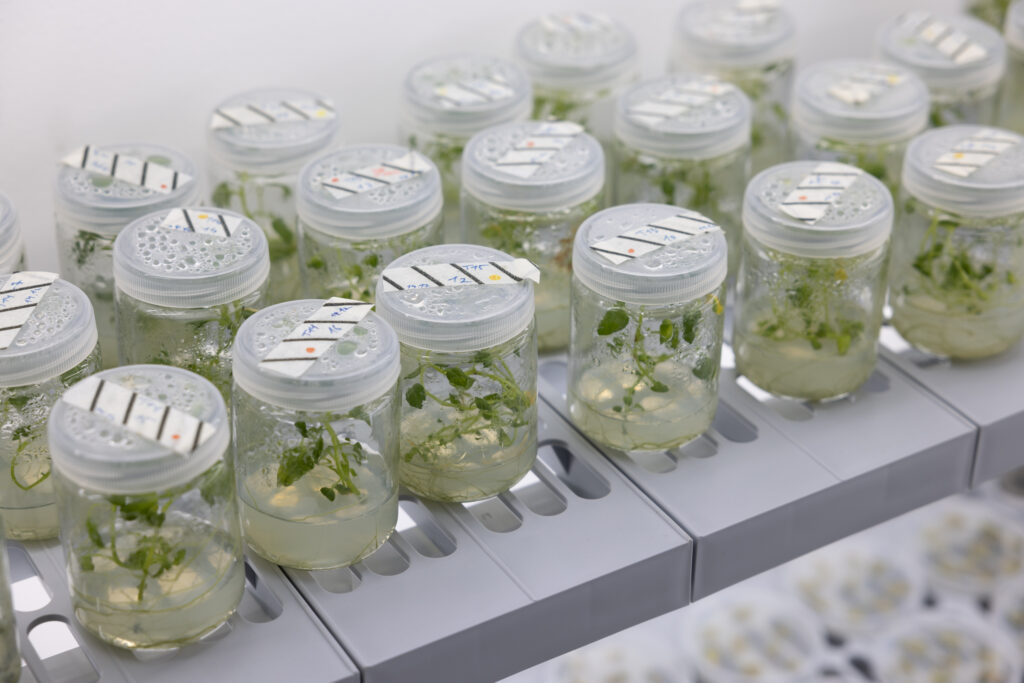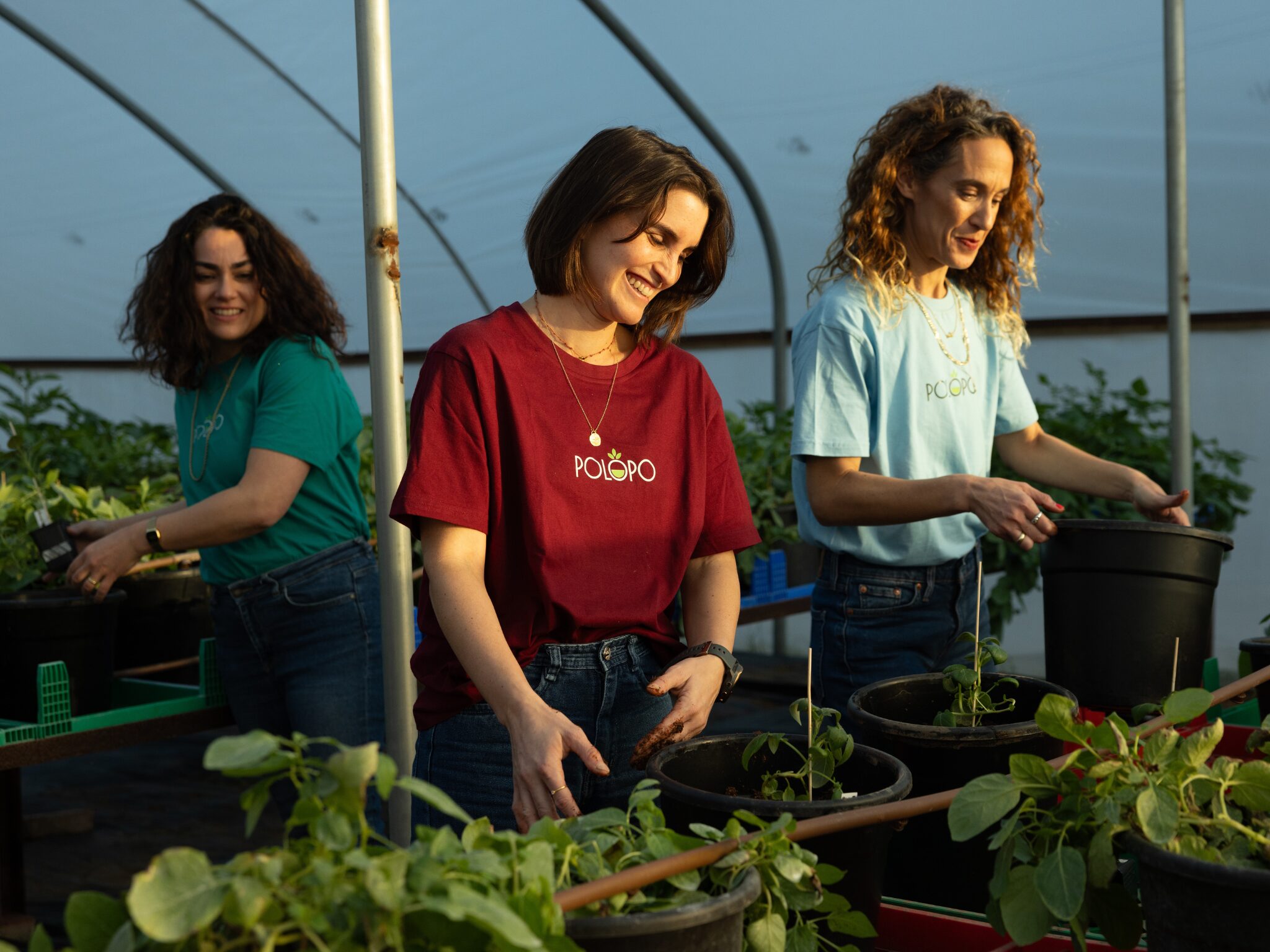PoLoPo Submits Molecular Farming Platform for USDA Approval to Grow Egg Proteins in Potatoes
5 Mins Read
Israeli startup PoLoPo has filed for USDA approval of its molecular farming platform, which genetically engineers potatoes to produce egg proteins within the plant.
PoLoPo is pursuing regulatory approval in the US for its molecular farming technology, which transforms potatoes into egg-protein-producing factories.
Its application for Regulatory Status Review (RSR) to the USDA’s Animal and Plant Inspection Service (APHIS) marks the first step of the regulatory ladder for its SuperAA platform. This is expected within six months, and will establish that PoLoPo’s tech poses no agricultural or pest risk compared to conventional potato cultivation.
Following the greenlight from the APHIS, the startup would be able to pursue commercial plans to grow its transgenic potato plants in the US via partners and local growers. It would also need to engage with the FDA as the next step towards commercialisation.
The company says it’s the first Israeli molecular farming player to seek US approval. Asked why it chose to launch here, PoLoPo co-founder and CEO Maya Sapir-Mir told Green Queen: “Although our product does not contain any DNA, GMO-based technology and production (growth of transgenic plants) are still an issue in most geographies. The US is the most suitable market in terms of regulation and customer acceptance for GMO-based products, so we are starting there.”
She added that the country’s potato growing and starch processing industry is big too, and the startup intends to use existing infrastructure for production.
An egg protein suitable for alt-meat, desserts and snacks

Founded in 2022, PoLoPo’s Super AA platform grows target amino acids within a potato’s tuber, which are harvested when they reach sufficient size. The protein is then extracted and dried into a powder that can be integrated into existing food processing lines and formulations.
Currently deployed at greenhouse scale, the technology can generate patatin (a group of native proteins found in potatoes) and ovalbumin (the major protein found in eggs) through proprietary metabolic engineering techniques. It inserts a DNA sequence into the potato to teach it to produce an egg protein that’s fully functional, and nutritionally and chemically identical to chicken eggs. While this means there’s no animal input and the egg proteins are – by definition – vegan, they’re not suitable for people with egg allergies.
According to PoLoPo, the product has undergone rigorous testing and meets all the necessary food safety standards, deeming it safe for consumption after quality control assessments. USDA approval would set it on the path to actually sell the product to manufacturers, who can use the ovalbumin powder in baked goods, desserts, snacks, meat and meat alternatives, and ice cream.
The highly functional protein can also be used for stabilisation, increasing the nutritional value, and prolonging the shelf life of CPG products. “Our first RSR is for the SuperAA platform itself and not for a specific protein. This step is crucial, as the SuperAA will be the background variety for all our future commercial varieties (for producing different target proteins),” explained Sapir-Mir.
“Once we obtain this approval, we can relatively quickly approve every variety expressing any target protein that we will commercialise (starting with ovalbumin).”
PoLoPo targets 2026 launch via B2B partners

PoLoPo operates as a B2B ingredient provider, instead of selling its own end products on the market. Sapir-Mir did not disclose whether the startup has signed any agreements with manufacturers, but she outlined that B2C is outside its scope currently, and its ingredient fits perfectly into a B2B model.
“The food industry already uses egg proteins in powder, so working with our functional protein powder will be almost straightforward. Moreover, we want to improve the global food production system as much as we can and make it much more sustainable,” she said. “Therefore, the B2B model is the way to go, allowing for a wide range of possibilities and potential impacts.”
PoLoPo closed a $2.3M pre-seed funding round at the end of 2022, and it’s now raising capital again. “This is the right time for PoLoPo to give another boost in R&D and commercial aspects,” said Sapir-Mir. “We are keen to work with strategic investors, from potato growers to potato processors and ingredient providers.”
It’s targeting a market that is inundated with volatile, unpredictable prices and supply shocks due to frequent avian flu outbreaks. It’s also addressing the cruelty issue – in the US, most (if not all) egg-laying hens are part of concentrated animal feeding operations.
Sapir-Mir is targeting 2026 for the rollout of the first products using PoLoPo’s ovalbumin, via collaborations with CPG companies and foodservice chains. Asked if it had global ambitions, she said the current focus is in the US, a huge market with a ton of opportunities. “Nevertheless, we are keen to see other parts of the world that will understand the opportunity to feed the growing population by using GMO methods, and hope to grow our potatoes in more parts of the world.”
Molecular farming is emerging as one of the next frontiers of alternative protein, thanks to its ability to scale up fast and keep costs down compared to animal cell cultivation or precision fermentation – this is made possible by the use of plants to produce ingredients, instead of expensive bioreactors.
Alpine Bio (formerly Nobell Foods), Mozza, Miruku, Finally Foods and Moolec are all using the tech to develop various ingredients through plants. The latter is publicly listed on the Nasdaq and is one of the industry’s leaders. Last month, it received APHIS approval for Piggy Sooy, which are soybeans containing pork proteins.



